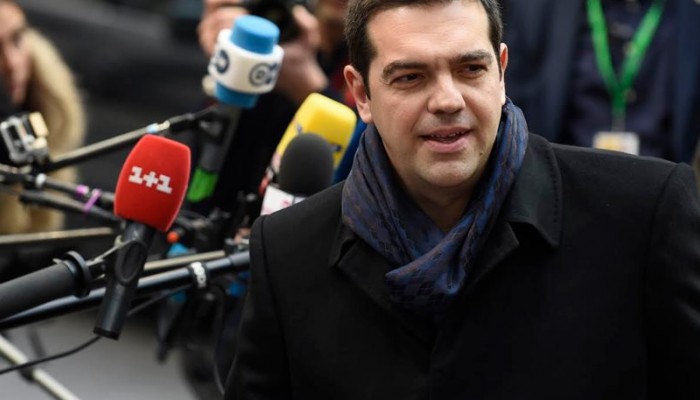With both sides said to be drawing up final proposals, and a definitive debt crunch thought to be imminent, the months of brinkmanship over Greece may at last be drawing to a close. But who knows, really? You might think making this shambles any worse would challenge even these principals. I don’t know. I think they’re up to it.
Whatever happens, take a moment to reflect on the damage already done during the stalemate — damage that will persist even if the brink isn’t crossed, and a deal is done to avoid a Greek default plus exit from the euro system.
First, Greece’s economic situation, which was bad to begin with, has deteriorated further. Savers have been withdrawing deposits from Greek banks. Investors have hammered the stock market. Under these conditions, few businesses choose to invest or expand. Despite cheap oil and a weaker euro, the Greek economy has fallen back into recession.
Second, as a result, the country’s bad fiscal situation is now worse. Whatever fiscal targets are eventually agreed to — assuming that happens — will be harder to meet. A deal sufficient, four months ago, to stabilize Greece’s public finances and restore growth might no longer work. Greece already has two failed bailout programs to its name. The stalemate makes the failure of the next program, if there is one, more likely.
Third, the world has learned that exit from the euro system is not just thinkable but has actually been advocated, as a kind of disciplinary measure, by officials in Germany and other countries. It’s widely understood that if Greece leaves the euro system or is forced out, attention will turn, sooner or later, to the question of who’s next. Every serious economic setback will raise that question. Less widely understood is that much of this damage to the euro zone’s foundations has already been done, and is irreversible. Once you think the unthinkable — debate the pros and cons, start to plan for it — there’s no going back.
In his celebrated (if belated) intervention in 2012, European Central Bank President Mario Draghi said he would do whatever it took to keep the euro system intact; Europe’s economy rallied. Whatever happens this week or next regarding Greece, Europe’s leaders have reneged on that promise: They might do whatever it takes, but they’ll need to think about it first. Europe’s economic crisis was an opportunity to show financial markets that the euro is to Greece as the dollar is to, say, West Virginia (no disrespect to that fine state). Whatever happens next, we now know different.
The kind of deal that could end the stalemate isn’t hard to envisage, and never was. The vital components are less demanding fiscal targets than the impossibly severe restraints of the current bailout program; policy commitments that would plausibly meet those achievable goals; and further debt restructuring to make the first component compatible with the second.
Working out the details of such a plan was bound to take time. But Greece and its creditors haven’t even been having that conversation. The back-and-forth has centered on the standing of the current failed bailout program, and whether Greece will be held bound to it or not. And that ridiculous quarrel has been conducted under constant threat of financial breakdown.
Commitment to the shape (if not the details) of a sensible deal, with a financial breathing space while it was negotiated, could have been achieved in February. The necessary conditions were, on both sides, a willingness to compromise; on the Greek side, a far less confrontational style; and on the European side, an effort to help Greece’s leaders sell an unpopular deal to their voters. Instead, the Greeks came on as though the rules had all changed and they would dictate terms, while Europe demanded overt capitulation.
It has been, altogether, an amazing failure of leadership. And when it comes to Europe and failures of leadership, one isn’t easily amazed.



















